
Menstrual Hygiene
Aakriti’s role in menstruation awareness is crucial for improving the health and well-being of rural women and girls in Udaipur. Many in rural communities face challenges like lack of information, access to sanitary products and proper hygiene practices. We aim to address these issues by spreading awareness, distributing sanitary pads and providing education. Our activities include conducting workshops and awareness drives in government schools and rural areas to educate women and girls about menstrual health. We distribute sanitary pads and hygiene kits to ensure they have access to necessary products. Our team also trains local health workers and teachers to continue education on menstrual hygiene. For example, last year, we reached over 3,000 women and girls across 10 villages through our drives. We provided more than 8,000 sanitary pads and conducted training sessions that improved menstrual health knowledge among participants.
By addressing these needs, we help break the stigma surrounding menstruation, leading to better health outcomes and more empowered women. Our efforts ensure that rural communities have the knowledge and resources they need for better menstrual health.
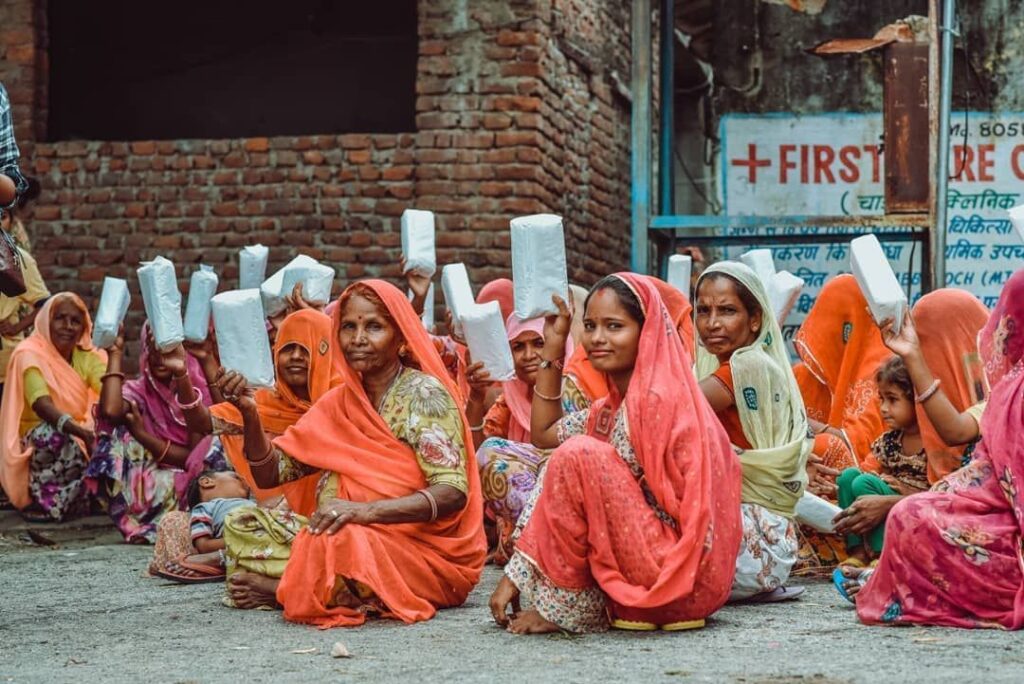

Health & Nutrition
‘Health cannot wait’. Last-mile delivery of healthcare is always challenging in a country as vast and diverse as India. The uneven distribution of healthcare infrastructure as well as medical professionals makes quality healthcare services inaccessible to a large population living in rural areas. Urban slum dwellers, on the other hand, suffer from lack of awareness, adverse living conditions and the unwillingness to lose a day’s wage in order to reach the nearest medical facility. Studies have shown that a child’s health in their first 1,000 days of life is critical as it influences their development in childhood as well as adulthood. Hence, it becomes imperative to ensure healthy pregnancy and healthy mothers and children.
With an aim to make people aware of diseases that are fatal when not cured in the initial phases, the importance of nutrition food for children as well as for pregnant ladies, staying away from packed food, promoting the inclusion of basic exercises through Yog and collaborating with hospitals to put monthly health care camps in rural backgrounds. Taking healthy measures alone can reduce pressure from existing healthcare systems and reduce out-of-pocket expenses for health. Aakriti Newage Foundation is taking initiative to establish the fact that health should be the person’s first priority. Sharing measures to not fall ill is the first step, including a balanced diet and in case there is any need, Aakriti can bring healthcare services to the doorstep of vulnerable communities, with a focus on women and children. Awareness activities like school health camps, drives in the tribal areas and street plays are also conducted to encourage children and the community to adopt a health-seeking behavior.
Sustainable Practices
NGOs play a vital role in introducing sustainable practices by addressing social, economic and environmental issues. They work to improve living conditions, protect natural resources and provide essential support and awareness. Aakriti focuses on sustainable practices such as organic farming, tree plantation and using organic products for everyday use. For example, in the Dhara Shringaar drives, we promote planting trees that are native to that land, rainwater harvesting and the importance of organic farming. Aakriti also educates villagers and makes organic and upcycled products, helping them earn a better income while protecting the environment. We have trained over 200 farmers and women in sustainable farming and making organic products. Nearly 20 farms have implemented the practice of growing trees in their farmland because of our awareness drives, which has led to a decrease in the consumption of water for irrigation. Proceeds received from the sale of upcycled products have generated income for women, and many of them have made it into their livelihoods.
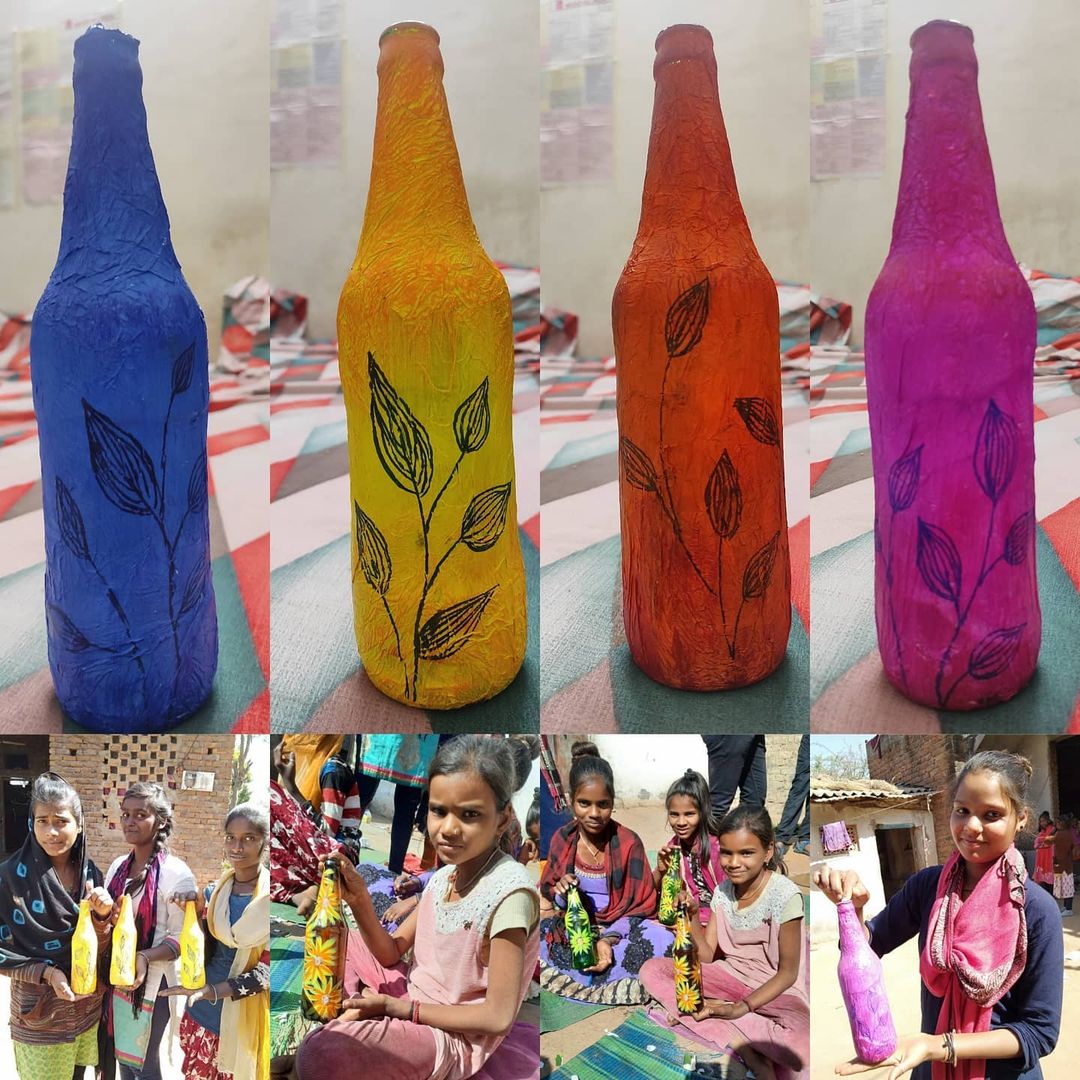

Women’s Safety
At Aakriti Newage Foundation, our role in spreading women’s safety awareness is essential for creating safer environments for women and girls in rural communities. Many in these areas face risks of violence and harassment and often lack the knowledge and resources to protect themselves. We focus on several key activities to address these issues. We conduct safety workshops where we train women and girls about their rights, self-defense techniques and how to seek help in case of violence. We also partner with local authorities to raise awareness about legal protections and support services available to them.
For example, from the last two we are organising safety workshops in 2 villages, reaching over 500+ women and girls. We distributed safety toolkits, including whistles, pepper sprays and emergency contact lists and trained 50 local volunteers to support and advocate for women’s safety in their communities.
Our efforts help empower women and girls to protect themselves and raise awareness about their rights. By providing education and resources, we aim to reduce incidents of violence and create a safer environment for everyone in the rural areas we serve.
Digital Literacy
NGOs play a crucial role in promoting digital literacy among rural children and communities. Combining technology with social impact creates a powerful synthesis, solving India’s socio-economic challenges and achieving the Digital India dream. Aakriti helps bridge the digital divide by providing access to technology and teaching essential digital skills. This enables rural people to use computers, smartphones and the internet, along with various government policies and income-generating skills, which can improve education, employment opportunities and daily life.
Our one such initiative is the Saksham Siksha program. This programme provides digital literacy awareness to rural communities and training to over 500 rural children and adults. They teach basic computer skills, internet use and how to access online resources for learning and earning.
The people in our village are now more aware of government policies, therefore enrolling faster and children have more teachers with good grades. The focus is on online education for rural children, which connects volunteer teachers with rural schools through our mini digital classrooms, improving the quality of education. Better internet access, digital literacy training, and e-governance services have eased the lives of rural communities in the past two years.
By promoting digital literacy, Aakriti helps rural communities access information, enhance education and create new economic opportunities. This leads to more informed and connected communities, contributing to overall development.
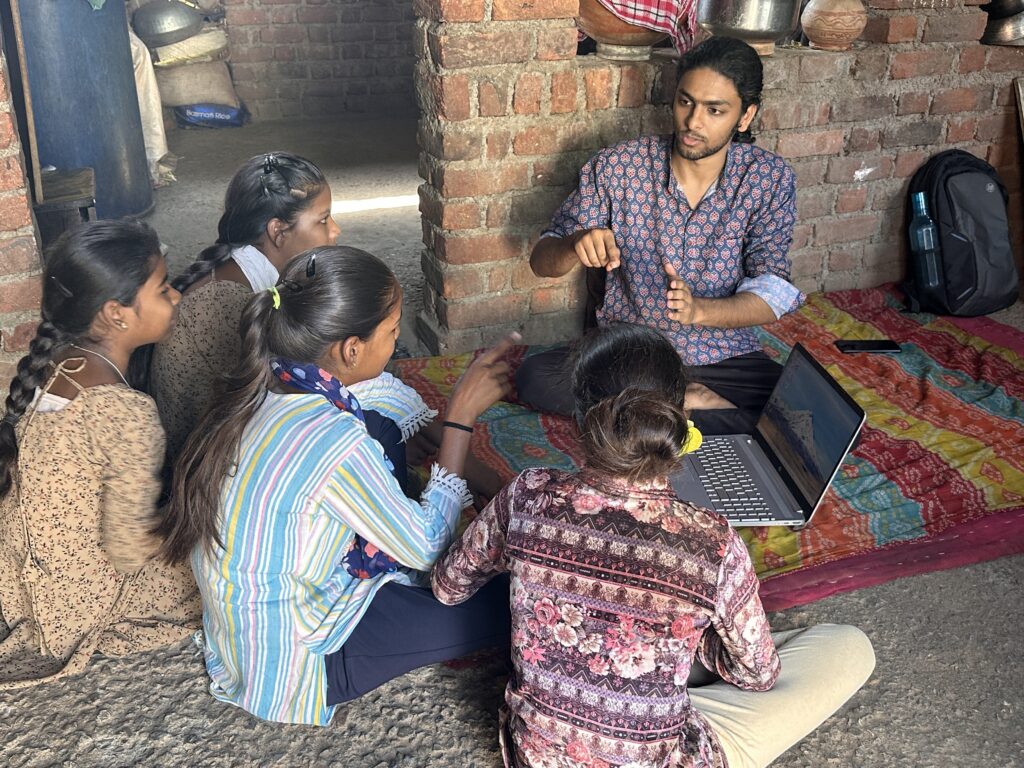
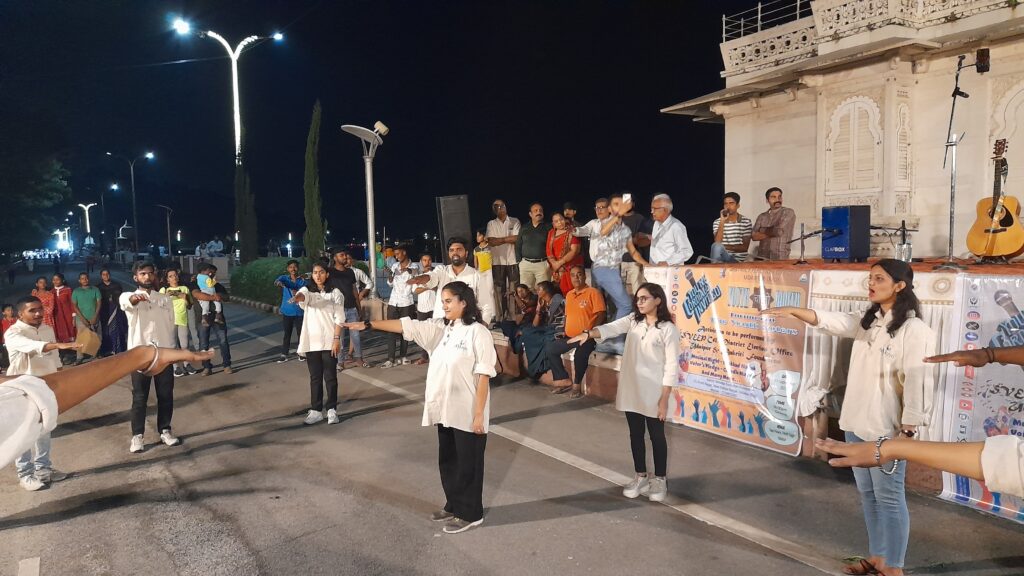
Voting Awareness
Our focus on voting awareness aims to ensure that every eligible voter understands the importance of participating in elections. We believe that informed and engaged voters are crucial for a healthy democracy. To spread voting awareness, we have organised various activities. We use street plays to engage communities in an entertaining and educational way, highlighting the importance of voting and the voting process. These plays have reached thousands of people in Udaipur, making complex information accessible and memorable.
Additionally, we work closely with the election commission to help with voter registration drives and informational sessions. For example, in the 2024 lok sabha election cycle, we assisted in registering over 1,500 new voters and conducted awareness campaigns in urban areas. Our efforts help demystify the voting process, encourage more people to vote, and ensure that everyone understands their rights and responsibilities. By raising awareness and providing practical support, we contribute to higher voter turnout and a more engaged electorate.
Traffic Rules Education
At Aakriti Newage, part of our awareness vertical is dedicated towards spreading awareness about traffic rules to improve road safety. Our goal is to ensure that everyone, especially young people, understands the importance of following traffic regulations. We have carried out several activities to promote traffic rules education. For instance, we organises street plays at busy crossroads to capture the attention of drivers and pedestrians. These performances illustrate common traffic violations and their consequences, making the message clear and engaging. Through these plays, we have reached thousands of people directly in high-traffic areas. Additionally, we collaborate with Udaipur’s traffic police department to conduct awareness programs in universities and college campuses. These programs educate students about safe driving practices, the importance of wearing seat belts and helmets, and the legal consequences of traffic violations. In the past year itself, we have reached over 2,000 students through these campus events.
Our efforts aim to reduce traffic accidents and promote safer driving habits. By using creative approaches and working with local authorities, we strive to make a significant impact on road safety in our community.
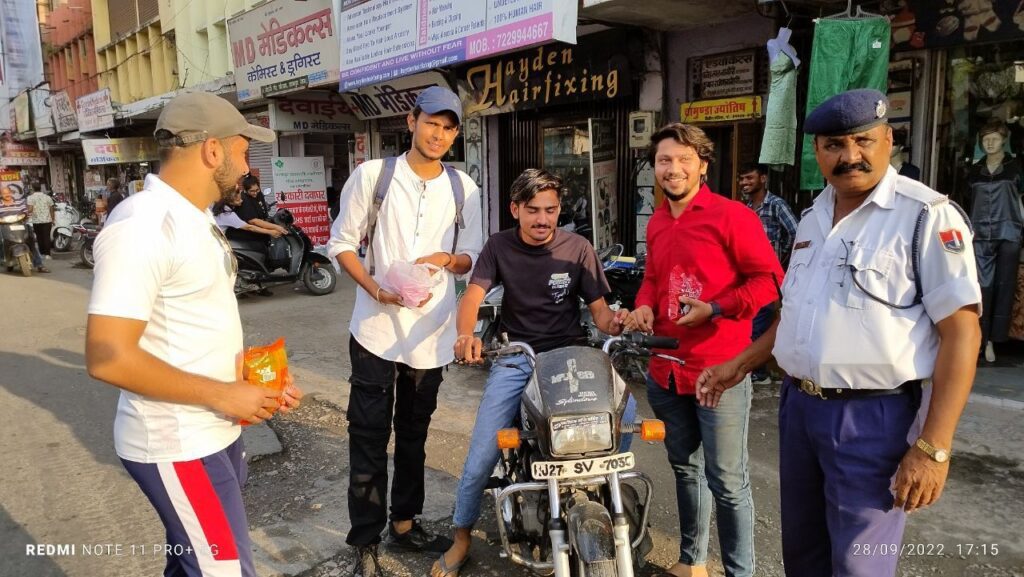
Why is There a Need to Spread Awareness?
Spreading awareness and encouraging society’s participation in areas mentioned above is essential. Many people in both rural and urban areas lack basic knowledge about these topics. This can lead to health issues, safety risks and missed opportunities. For example, not knowing about menstrual health can cause health problems for women and girls. Poor nutrition knowledge can lead to unhealthy eating habits and diseases especially in pregnant women. For example, in terms of health and nutrition, nearly 50% of Indian women are anemic, which affects their ability to work and care for their families. Lack of awareness about women’s safety can put women at risk of violence.
Sustainable practices like use of organic products & farming helps the environment and promote healthier lifestyle, but many farmers & people in general need education on these methods. Digital literacy is crucial in today’s world for accessing information and services, yet many in rural areas still don’t know how to use digital tools. Voter education ensures people make informed choices in elections, and understanding traffic rules helps reduce accidents.
Society can help by supporting NGOs in spreading awareness and education. People can volunteer, donate or simply share information within their communities. By working together, society and NGOs can make sure everyone has the knowledge they need to live safer, healthier and more informed lives.
